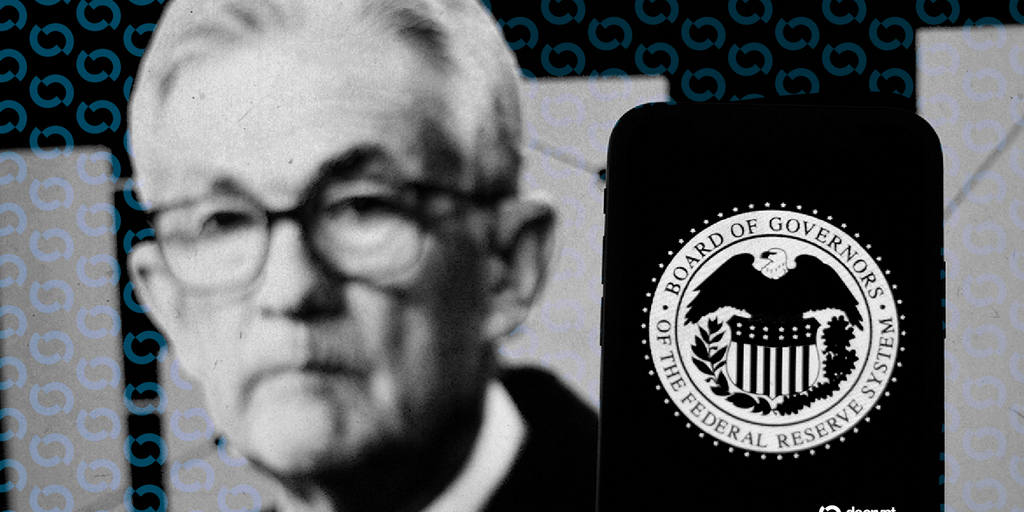In brief
- TRON founder Justin Sun is suing Bloomberg to block publication of his detailed crypto holdings.
- Sun warns that disclosing specific crypto amounts would expose him to “wrench attacks,” and enable criminals to identify his wallet addresses.
- Bloomberg journalists allegedly promised his data would remain “strictly confidential,” but the company now plans to publish detailed breakdowns despite these assurances, the lawsuit alleges.
TRON founder Justin Sun has filed a federal lawsuit against Bloomberg, alleging the media giant plans to break confidentiality promises by publishing detailed information about his crypto holdings that could expose him to “significant risk of theft, hacking, kidnapping, and bodily harm.”
The lawsuit, filed Monday in Delaware federal court, seeks to block Bloomberg from disclosing specific crypto amounts that Sun provided solely for wealth verification to be included in the company’s Billionaires Index.
Sun alleges Bloomberg promised the information would be kept “strictly confidential.”
The lawsuit, first reported by crypto researcher Molly White, seeks temporary and permanent injunctions preventing Bloomberg from publishing Sun’s specific crypto holdings.
The filing notes that crypto transactions are “irreversible” and that “if Plaintiff is coerced, hacked, or scammed out of their funds, there is little or no recourse.”
Representatives for Sun did not immediately respond to Decrypt’s request for comment. Efforts have been made to contact Bloomberg.
Bloomberg journalist Muyao Shen allegedly approached Sun’s team in February 2025 to feature him in the Billionaires Index, which ranks the world’s 500 richest individuals, according to the complaint.
Sun initially hesitated due to concerns about his “substantial cryptocurrency holdings” but agreed after receiving what he describes as explicit assurances that his financial information would remain confidential.
“In practice, Justin could furnish Bloomberg a zero-knowledge net-worth proof without revealing addresses or positions,” David Gu, General Counsel of LBank, told Decrypt.
Gu acknowledged that “modern democracies value the public’s right to know, especially when high-profile figures’ finances may bear on matters of public trust.”
Yet “financial data is uniquely sensitive,” he said, adding “disclosure should be purpose-driven and proportionate, balanced against credible security, privacy, and contractual interests.”
Bloomberg journalist Tom Sloan reportedly told Sun’s team in a secure Telegram chat that wallet address files “won’t leave our office and the only people who have access are my team and the engineers who manage the API.”
Wrench attack concerns
Sun’s team repeatedly stressed the sensitive nature of the data, writing, “All information shared within the group is strictly confidential and for verification purposes only.”
The entrepreneur said that publishing detailed crypto breakdowns differs from how Bloomberg typically handles such information.
The lawsuit notes that other billionaires’ crypto holdings in the index are reported only as lump sums or based on public statements.
Sun’s legal team warns that disclosing specific crypto amounts would enable bad actors to identify his wallet addresses through “address clustering techniques” that analyze transaction patterns.
The lawsuit references Bloomberg’s own coverage of “wrench attacks,” physical violence used to force crypto transfers, noting that “public wallet visibility increases the risk” of such attacks.
This year alone, there have been 51 documented attacks globally, with high-profile kidnappings in France, where victims had fingers severed, and a crypto founder forced to transfer $500,000 at gunpoint in Uganda.
Bloomberg has reportedly confirmed its intent to publish the information “imminently,” according to the complaint.
Sun is demanding a jury trial and seeking court costs and attorney fees in the case.
Daily Debrief Newsletter
Start every day with the top news stories right now, plus original features, a podcast, videos and more.
in well organized HTML format with all tags properly closed. Create appropriate headings and subheadings to organize the content. Ensure the rewritten content is approximately 1500 words. Do not include the title and images. please do not add any introductory text in start and any Note in the end explaining about what you have done or how you done it .i am directly publishing the output as article so please only give me rewritten content. At the end of the content, include a “Conclusion” section and a well-formatted “FAQs” section.









